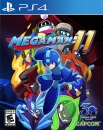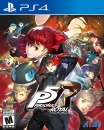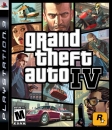The_Liquid_Laser said:
Backwards compatibility and legacy content are really important. The most important things for selling a system are game library and price. That old content is a real easy way to beef up a game library. If the system is backwards compatible, then it becomes an attractive system right out of the gate. Let's look at some evidence.
1) The PS2. It inherited the PS1's library, which is extremely impressive. If you add the PS1 and PS2 game libraries together you get over 8000 games. The PS2 is Sony's most successful system and the best selling game console of all time.
2) The Wii. The SNES, N64 and Gamecube lacked backwards compatibility. Then the Wii comes along. It's both backwards compatible with the Gamecube and it also has a ton of old games on the Virtual Console. People like to point out Nintendo's decline in the home market NES > SNES > N64 >GCN. The the Wii comes along and turns that all around. One huge feature of the Wii was all of that old content.
3) Nintendo handhelds. Nintendo has never been defeated in the handheld market. GBA, DS, and 3DS were all backwards compatible.
4) Switch. Backwards compatible? No. Legacy content? Lots of it. The best selling game on the Switch is a Wii U game. One reason why the Switch did so well out of the gate is because they could port over a lot of the Wii U titles. That made the Switch's library pretty good even from the first year, because most people never played those Wii U titles. The Switch also has a bunch of old NES/SNES games included with it's online service.
5) XBox1. This system is a total turd. If you take away the backwards compatibility then there is almost no reason to buy this system. Personally, I've never owned any XBox, but I am seriously giving consideration for the XB1 just because of backwards compatibility. It's the XB1's main selling point.
6) PS5. The PS5 has backwards compatibility and it's still sold out. What new games does the PS5 have? None. Demon's Souls? That is legacy content. People definitely don't want the PS5 for new exclusive games, because it doesn't have any.
7) Sega Saturn, N64, Gamecube, PS3, PS Vita. All of these systems lacked backwards compatibility and sold disappointingly compared to their predecessor. It's clear that all of these systems made some pretty big mistakes, but then again, so did the XB1, and it managed to salvage most of it's Gen 7 market in spite of being about as good as a Saturn or Vita on it's own merits.
In short, legacy content matters a lot. It's an easy way to beef up a system's library. On top of that the easiest way to include legacy content on a system is simply to make it backwards compatible.
|



























































